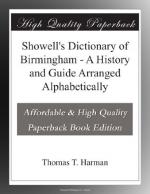1820, Oct. 3 to 6. President, the Hon. Heneage Legge. The principal performers included Madame Vestris, Signora Corn, Miss Symends (a native of this town, and who continued to sing here occasionally for twenty years), Signor Begrez (tenor), Signor Ambrogetti (buffo bass), Mr. R.N.C. Bocusa (harpist), Mr. Sha gool (violinist), Mr. Stanier (flautist), and Mr. Munde (viola player). The last two gentlemen were connected with this town until very late years. The chief novelty was the English version of Haydn’s “Seasons,” written by the Rev. John Webb, a local clergyman. Receipts, L9,483; profits, L5,001 11s.
1823, Oct. 7 to 10. President, Sir Francis Lawley, Bart. Among the fresh faces were those of Miss Heaton (afterwards Mrs. T.C. Salt), Signor Placci (baritone), Mr. Thome (bass), Mr. Nicholson (flute), and Signor Puzzi (horn). The Rev. John Webb wrote for this occasion, “The Triumph of Gideon,” an English adaptation of Winter’s “Timotos.” Receipts, L11,115 10s.; profits, L5,806 12s.
1826, Oct. 4 to 7. President, Earl Howe. The programmes this year were more varied than at any previous festival, the performances, in addition to the “Messiah,” including the oratorio “Joseph,” by Mehul, selections from Graun’s “Der Tod Jesu,” Handel’s “Judas Maccabeus,” Haydn’s “Seasons,” &c. A number of the performers appeared here for their first time, including Madame Caradori, Miss Paton, Miss Bacon, Henry Phillips (the veteran and popular singer of later days, but who was then only in his 25th year), Signor Curioni (said to have borne a wonderful resemblance to Shakespeare in his figurehead and features), Signor de Begius, Mr. John Baptiste Cramer, C.G. Kiesewetter (who died the following year), Charles Augustus de Beriot (who married Madame Malibran-Garcia), and quite a host of local instrumentalists who were long chief among our Birmingham musicians. Receipts L10,104; profits L4,592.
1829, Oct. 6 to 9. President, the Earl of Bradford. This was the Jubilee Year of the General Hospital, and conspicuous in the programme was the “Jubilee Anthem” in commemoration of the fiftieth year of its establishment, the words being adapted to the music composed by Cherubini for Charles X.s coronation. This was also the last year in which the Festival performances took place in St. Philip’s Church or (except several single nights of operatic selections) at the Theatre. Besides the “Jubilee Anthem,” there were novelties in the shape of Zingarelli’s “Cantata Sacra” (described in a musical publication as a “tame, insipid, heap of commonplace trash"), and the introduction of “operatic selections” at the evening concerts. Amongst the performers who made their debut in Birmingham were Madame Malibran-Garcia, Mdlle. Blasis, Miss Fanny Ayton, Signor Costa, Signor Guibelei, Mrs. Anderson (who gave pianoforte lessons to Princess Victoria), and Mr. Charles Lucas (violoncello). Receipts, L9,771; profits, L3,806 17s.




